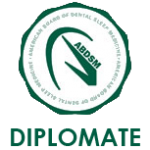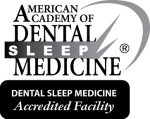Oral Appliances
Oral appliances are a front-line treatment for snoring and mild to moderate obstructive sleep apnea. Oral appliances help prevent the collapse of the tongue and soft tissues in the back of the throat, keeping the airway open during sleep.
At DWH, Dr. Chahine will help you in the selection, fitting and use of a specially designed oral appliance that maintains an open, unobstructed airway in the throat when worn during sleep. Custom-made oral appliances are proven to be more effective than over-the-counter devices, which are not recommended as a screening tool nor as a therapeutic option.
Oral appliances may be used alone or in combination with other treatments for sleep-related breathing disorders, such as weight management, surgery or CPAP.
How Do Oral Appliances Work ?
• Repositioning the lower jaw, tongue, soft palate and uvula
• Stabilizing the lower jaw and tongue
• Increasing the muscle tone of the tongue
Steps to Oral Appliance Therapy
Dentists with training in oral appliance therapy are familiar with the various designs of appliances and can help determine which is best suited for your specific needs. A board certified sleep medicine physician must first provide a diagnosis and recommend the most effective treatment approach.
The initial evaluation phase of oral appliance therapy can take several weeks or months to complete. This includes examination, evaluation to determine the most appropriate oral appliance, fitting, maximizing adaptation of the appliance, and the function.
Ongoing care, including short- and long-term follow-up is an essential step in the treatment of snoring and Obstructive Sleep Apnea with Oral Appliance Therapy. Follow-up care serves to assess the treatment of your sleep disorder, the condition of your appliance, your physical response to your appliance, and to ensure that it is comfortable and effective. After completion of this phase, Dr. Chahine will refer you back to your physician for reevaluation of the effectiveness of the oral appliance.
Advantages of Oral Appliance Therapy
• Oral appliances are comfortable and easy to wear. Most people find that it only takes a couple of weeks to become acclimated to wearing the appliance.
• Oral appliances are small and convenient making them easy to carry when traveling.
• Treatment with oral appliances is reversible and non-invasive
Types of Oral Appliances
There are different oral appliances available to you. The selection of a specific appliance is based on you dental anatomy. Oral appliances can be classified by mode of action or design variation.
Tongue Retaining Appliances
Tongue retaining appliances hold the tongue in a forward position using a suction bulb. When the tongue is in a forward position, it serves to keep the back of the tongue from collapsing during sleep and obstructing the airway in the throat.
They are indicated for patients who have many missing teeth, for patients who have dentures , and patients with jaw disorders.
Mandibular Repositioning Appliances
Mandibular repositioning appliances reposition and maintain the lower jaw in a protruded position during sleep. The device serves to open the airway by indirectly pulling the tongue forward, stimulating activity of the muscles in the tongue and making it more rigid. The device also holds the lower jaw and other structures in a stable position to prevent the mouth from opening.
Other Treatment Options
There are three primary ways to treat snoring and sleep apnea, in addition to lifestyle changes such as good sleep hygiene, exercise and weight loss.
The most common treatment is Continuous Positive Air Pressure. CPAP serves as a stent to maintain your airway open by providing a steady stream of air through a tube connected to a mask that you wear as you sleep.
Surgical option performed by maxillofacial surgeon. A surgeon can prevent airway collapses by eliminating tissue in the soft palate, uvula and tongue. More complex surgical procedures can reposition the anatomic structure of your mouth and facial bones.
If you suffer from snoring or know someone who snores, please discuss this with Dr. Chahine.
Dr. Chahine is one of a select few dentists in the State of Connecticut who is a Diplomate of the American Board of Dental Sleep Medicine. She serves as Chair of the Education Committee of the American Academy of Dental Sleep Medicine. As an active member of the medical and dental staff at Danbury Hospital Western Connecticut Health Network, Dr. Chahine works closely with the Hospital’s Pulmonary physicians in managing sleep apnea patients.
The material above is provided by the American Academy of Dental Sleep Medicine.


